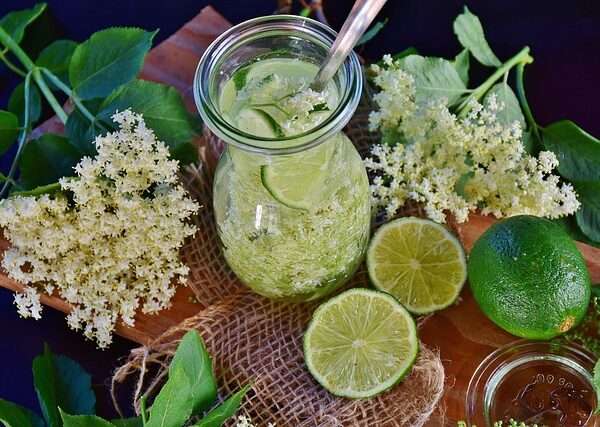Do you often feel tired, sluggish or have trouble concentrating during the day? Have you noticed that your skin is dry and your urine is dark yellow? These may all be signs of dehydration.
Water is essential for our bodies to function properly, yet many people do not drink enough water every day. In this article, we will explore the importance of hydration and how much water you should be drinking daily to stay healthy.
Water makes up about 60% of our body weight and plays a crucial role in maintaining bodily functions such as regulating body temperature, transporting nutrients and oxygen throughout the body, and removing waste.
When we do not drink enough water, our bodies become dehydrated which can lead to a range of health problems such as fatigue, headaches, dizziness, constipation and even kidney stones.
It’s important to note that while other beverages such as coffee and tea contain water, they can also act as diuretics which cause the body to lose more fluids than it takes in. Therefore, it’s important to prioritize drinking plain water throughout the day to ensure proper hydration.
The Role Of Water In The Body
 Water, the essence of life. We’ve all heard this phrase before, but what does it really mean?
Water, the essence of life. We’ve all heard this phrase before, but what does it really mean?
Well, for starters, water plays a vital role in our bodies. It’s responsible for maintaining bodily functions such as regulating body temperature, aiding digestion, and transporting nutrients throughout the body. In fact, water makes up approximately 60% of our total body weight.
When it comes to exercise, hydration becomes even more important. During physical activity, our bodies lose water through sweat and respiration. If we don’t replenish these lost fluids by drinking enough water, we can become dehydrated. This can lead to fatigue, muscle cramps, and even heat exhaustion or heat stroke.
Another effect of dehydration that many people may not be aware of is its impact on skin health. When we’re dehydrated, our skin can become dry and flaky. Over time, chronic dehydration can contribute to premature aging and the development of wrinkles.
It’s clear that staying hydrated is crucial for overall health and well-being. So be sure to drink plenty of water throughout the day to keep your body functioning at its best!
Signs Of Dehydration
Dehydration is a condition that occurs when you lose more fluids than you take in. It can happen to anyone, regardless of age or health status.
There are many signs of dehydration, some of which may be subtle at first but can become severe if left untreated. Common causes of dehydration include not drinking enough water throughout the day, sweating excessively due to physical activity or hot weather, and certain medications that increase urine output.
Dehydration prevention involves making sure to drink enough fluids every day, especially when engaging in physical activity or spending time outdoors in the heat.
Some signs of dehydration include thirst, dry mouth and throat, dark yellow urine, fatigue, dizziness or lightheadedness, and headaches. If you experience any of these symptoms, it’s important to drink fluids immediately and seek medical attention if they persist or worsen.
By staying hydrated and being aware of the common causes and warning signs of dehydration, you can help keep your body functioning optimally.
Health Risks Associated With Dehydration
After understanding the signs of dehydration, it is important to take preventive measures. Dehydration prevention is key to maintaining good health and avoiding any serious complications.
One of the most effective ways to prevent dehydration is by monitoring your water intake. Water intake guidelines vary depending on age, sex, and activity level. Generally, it is recommended that men drink around 3.7 liters (or 125 ounces) of water per day, while women should aim for about 2.7 liters (91 ounces) of water daily. However, these guidelines are not set in stone and may differ based on individual needs.
It’s important to note that staying hydrated doesn’t just mean drinking water alone. Other sources of fluids like fruits, vegetables, and soups can also contribute to overall hydration levels.
By following proper water intake guidelines and incorporating other hydrating foods into your diet, you can prevent dehydration and keep your body functioning at its best.
How Much Water You Should Be Drinking
To maintain optimum health, it is vital to stay hydrated. The hydration requirements vary from person to person depending on their age, weight, and activity level. However, a general guideline suggests that an adult should drink at least 8-10 cups of water every day.
Drinking enough water can have numerous benefits for our body. It helps in regulating body temperature, lubricating joints, flushing out toxins, and aiding digestion. Water also keeps our skin healthy and glowing by keeping it moisturized from inside.
To make sure you are drinking enough water throughout the day, try these four tips:
1. Keep a refillable water bottle with you wherever you go.
2. Drink a glass of water as soon as you wake up in the morning.
3. Eat fruits and vegetables with high-water content such as cucumber and melon.
4. Set reminders on your phone or computer to drink water every hour.
Staying adequately hydrated is crucial for overall well-being. So don’t forget to sip on some refreshing H2O throughout the day!
Tips For Staying Hydrated Throughout The Day
Staying hydrated throughout the day is essential for maintaining good health. While we all know that drinking water is important, it can be easy to forget to do so when we’re busy with work or other activities.
Here are some tips for staying hydrated throughout the day.
Firstly, always carry a water bottle with you. This will ensure that you have access to water at all times, whether you’re at home, work, or out running errands.
Additionally, try to drink water before, during and after exercise. Hydration during exercise is crucial for keeping your body working efficiently and avoiding heat exhaustion or dehydration.
Lastly, remember the benefits of drinking water go beyond just quenching your thirst. Drinking enough water can help reduce fatigue, improve mood and cognitive function and even promote weight loss by curbing cravings.
So make sure to prioritize hydration throughout your day by incorporating these simple tips into your routine.
By following these tips for staying hydrated throughout the day, you’ll be able to reap the numerous benefits of drinking enough water daily. Remember that hydration is key to maintaining good health and well-being, so make sure you’re making it a priority in your life!
Frequently Asked Questions
Can Drinking Too Much Water Be Harmful To Your Health?
Drinking water is often touted as the ultimate elixir for good health, but can drinking too much of it be harmful?
Imagine a river overflowing its banks and flooding nearby towns. Similarly, our bodies can experience water intoxication when we drink excessive amounts of water, leading to electrolyte imbalances that can cause serious health problems.
Symptoms of water intoxication include headaches, nausea, vomiting, confusion and seizures.
Treatment typically involves limiting fluid intake and replenishing lost electrolytes.
So while staying hydrated is important for optimal health, it’s equally important to monitor your water intake to avoid the dangers of overhydration.
What Are Some Common Myths About Hydration That People Believe?
Debunking myths about hydration is crucial in maintaining a healthy lifestyle.
One common myth is that drinking water alone is enough to keep you hydrated. However, the importance of electrolytes cannot be overstated as they help regulate the body’s fluid balance.
Another myth is that thirst is not a reliable indicator of dehydration. On the contrary, thirst is a signal from the body that it needs more fluids.
It’s also important to note that drinking excessive amounts of water can dilute your blood and lead to hyponatremia, a condition where your sodium levels become dangerously low.
Thus, it’s important to stay informed and separate fact from fiction when it comes to proper hydration practices.
Does The Temperature Or Climate Affect How Much Water You Should Drink?
The temperature and climate can greatly affect how much water you should be drinking every day.
Altitude, for example, can cause dehydration because the air is drier and your body loses moisture faster.
If you’re exercising in a hot and humid environment, you’ll need to drink more water to compensate for the loss of fluids through sweat.
On the other hand, if you’re exercising in a cool environment, your hydration needs may not be as high.
It’s important to pay attention to your body’s thirst signals and adjust your water intake accordingly.
Are There Certain Foods That Can Help With Hydration?
Although there is a common belief that drinking water is the only way to hydrate, recent studies have suggested that certain foods can also help with hydration.
In fact, some experts claim that a well-balanced diet can provide up to 20% of daily water intake.
The best hydrating foods include watermelon, cucumber, celery, strawberries, and grapefruit.
These fruits and vegetables are not only low in calories but also rich in electrolytes and antioxidants, which aid in maintaining proper fluid balance and preventing dehydration.
Incorporating them into your diet can be an effective way to stay hydrated while also enjoying delicious and nutritious meals.
Can Other Beverages, Such As Tea Or Coffee, Count Towards Your Daily Water Intake?
Herbal teas can offer numerous benefits to your body, and they can also help you meet your daily hydration needs. Drinking tea is a great way to enjoy different flavors while getting the necessary fluids that your body needs.
However, it’s important to note that not all beverages are created equal when it comes to hydration. Sugary drinks like soda and sports drinks may quench your thirst, but they can also be dehydrating due to their high sugar content.
It’s best to limit these types of beverages and opt for water or herbal tea as much as possible to stay properly hydrated throughout the day.
Conclusion
So it seems that we’ve come to the end of our hydration journey. We’ve learned about the dangers of drinking too much water (yes, it’s a thing), debunked some common myths about hydration (no, you don’t need eight glasses a day), and explored how temperature and climate can affect your water needs.
But let’s be real, who wants to drink plain old water all day every day? Fear not, because there are plenty of foods that can help with hydration. Watermelon, cucumbers, and strawberries are just a few examples. And for those of you who love your tea or coffee, I’m happy to report that they can count towards your daily water intake as well.
In conclusion, staying hydrated is crucial for our health and well-being. But let’s not stress ourselves out over the exact amount of water we need to drink each day. Instead, let’s focus on incorporating hydrating foods into our diets and enjoying our favorite beverages in moderation.











